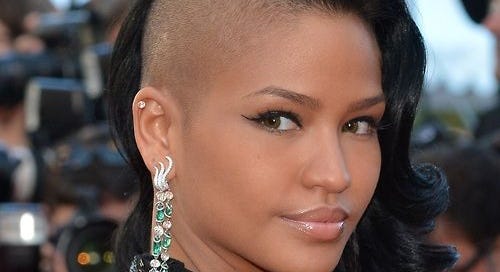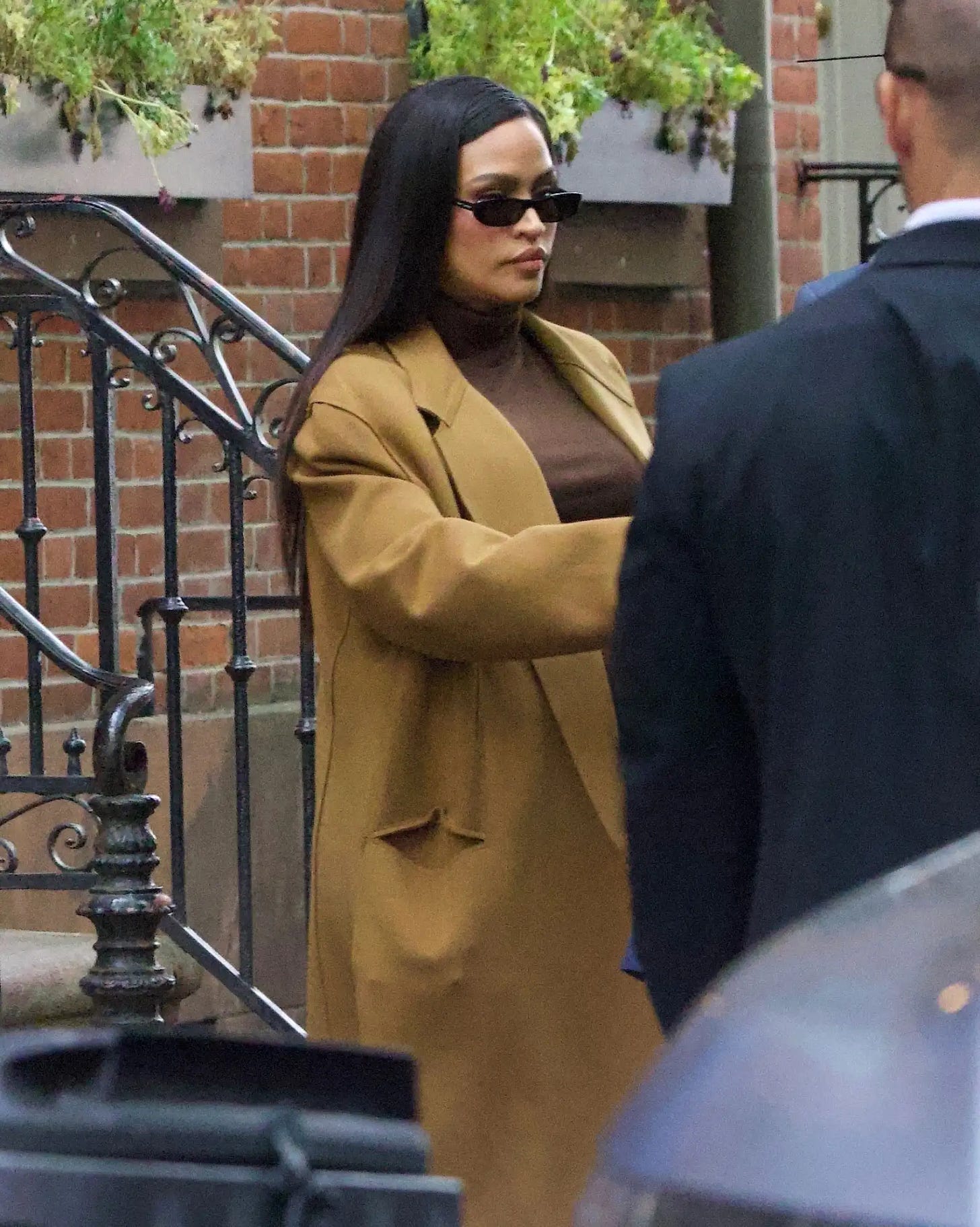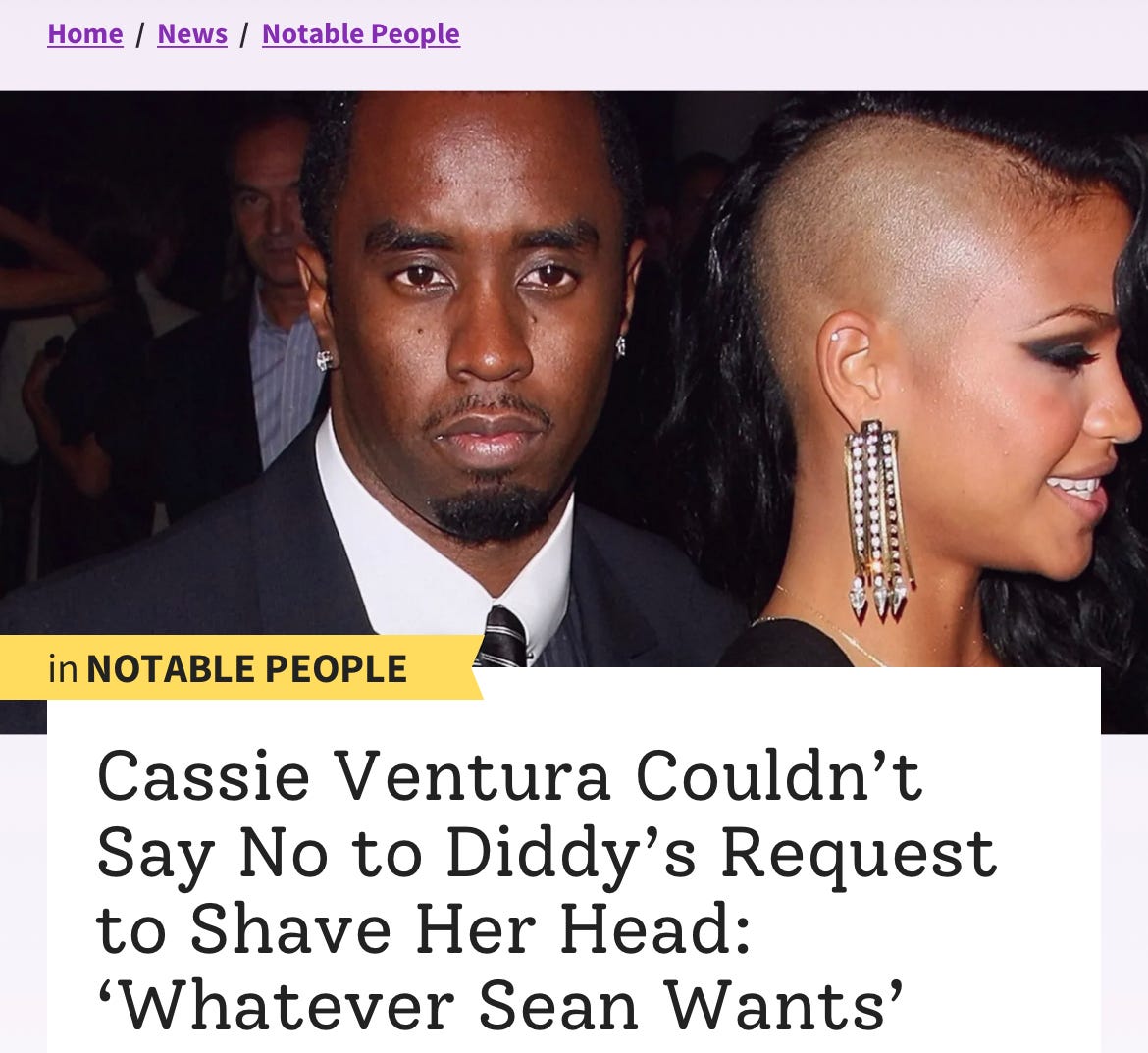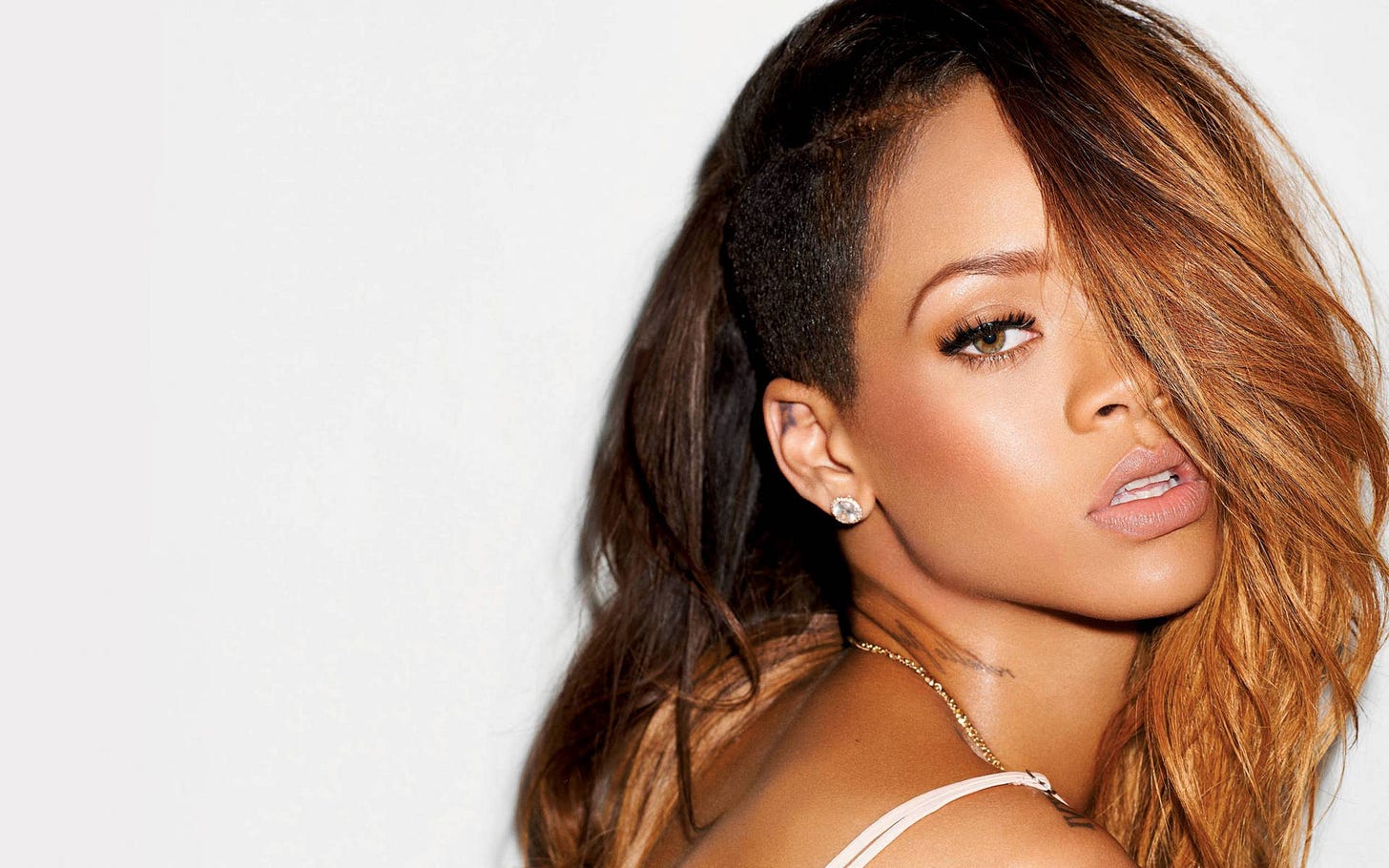Cassie Re-crafted: How This Hairstyle is Reframing the Narrative.
How a Black Female Fanbase Transformed a Symbol of Abuse Into a Display of Pop-Cultural Iconography.
When Cassie testified against Sean Combs many weeks ago now, most of us had our various concerns, not the least of which were questions about her well-being, and the dangers of being placed under such immense emotional stress eight months into her pregnancy. Determined to declare a mistrial - seeking to exonerate Diddy on the basis of any technicality or weak spot in her testimony, Combs’ team sought to exploit these same vulnerabilities whilst undermining her character in a way that might have threatened to further isolate this victim of abuse in the spotlight.
Outside of the legal arena, the court of public opinion began to settle in their convictions surrounding her claims. The evidence in her favour is irrefutable, complete with that forever haunted clip of her abuse suffered in a hotel hallway. Despite this, there exist scores of internet delinquents citing minor inconsistencies in her story as proof of her ‘dishonesty’, or choosing to discuss her supposedly diminished worth after labelling her as hyper sexual for her unwilling participation in the ‘Freak Offs’, or what you might call instances of mass coercion and drug induced rape.
On the flip side, we’re seeing an overwhelmingly supportive response from the black female online community. Naturally, their support might be attributed to their shared socio-political status as black women, though I prefer to peel back the surface ever-so-slightly. At the moment, the support shown for Cassie by black women everywhere is slightly unconventional. Primarily, the support extends beyond a concrete assuredness of her innocence, and has bled into a designated effort to combat negative ideas surrounding her image.
The origin story for perhaps the largest indication of this began in a nightclub many years ago. In a resurfaced interview, rapper Yung Joc details an incident at Miami’s LIV Nightclub where Diddy allegedly saw a woman with a half-shaved head and abruptly told Cassie, “Tomorrow I want you to shave the side of your head.”
According to Joc, Cassie responded ‘obediently’, saying, “Well, whatever Sean wants, I’m going to do.” Within days, she reportedly shaved her head and even sent Joc a photo to prove it. Whilst it’s more than likely her compliance came from a place of learned fear rather than true love and devotion for him, whether or not she wanted to shave her head is somewhat irrelevant after considering their power dynamic at the time, and her inability to say no to an abusive boyfriend and manager irrespective of her own true desires. After the clip reignited discussions about Diddy’s controlling behavior toward Cassie, many online have pointed to the head-shaving story as a symbolic and early sign of Diddy’s domination over Cassie’s autonomy and identity, particularly as the world watched on, feigning ignorance during the actual time period. Now, in the context of the trial, the hairstyle became yet another cautionary tale for overlooking or ignoring signs of control or manipulation, in a way that spoke to a desire to publicly humiliate and gradually warp the wider perception of a beautiful and talented artist.
When we observe Cassie’s experience through a lens that considers the long-standing cultural tradition of controlling Black women’s bodies and aesthetics in pop-culture, she is more than just a modern example, but rather a continuation of a cultural pattern.
The likes of Josephine Baker, Billie Holiday and Janet Jackson come to mind, where the scrutinisation of their appearances and behaviours were camouflaged under the guise of ‘branding’ by the men in power surrounding them.
Lately though, we’ve seen an onslaught of young black women sporting the , following discussions surrounding the incident in Miami specifically. As such, the resurgence of the trend clearly has a lot to do with Cassie‘s influence in addition to the long established effort to mimic y2k stylistic choices of course.
If I were interviewing Cassie now I’d ask her if she felt supported or memeified, particularly considering the habit in the media that is trivialising black female pain. Still, the popularity of the hairstyle now doesn’t feel like mocking, but rather a nod at Cassie’s transcendence and beauty, where she became associated with the style then and now in iconic fashion, despite its dark origins.
Variations of the style have begun to emerge, moving on from sporting fully shaved half-heads to incorporating braids into the style. Now the #Cassiebraids is popular under videos of women and girls in the hairstyle, paired with her timeless classic ‘Me & U’.
Cassie’s influence alongside the influence of artists like Rasheda, Rihanna and Ms Cherry has sparked what would become just the latest trend resurgence amongst black fashion and beauty influencers.
At the same time, we’re reminded of where emerging trends in pop-culture help us take a read on the socio-political temperature. As such, the popularisation of a hairstyle intentionally positioned as a means of degradation for Cassie, tells us about how much black women continue to support her despite the hold misogynoir still has on the community as a whole. Where tabloid media, hip-hop blogs and gossip sites have long controlled the narrative regarding black female artists, it’s certainly nice to see a shift in the tone, brought about by digital media, which as we’re seeing plays a vital role in reclaiming narratives like this one.
As far as what comes next for Cassie’s legacy and sphere of influence, we can only offer a speculative hope. On the one hand, this moment might be used as a blueprint for future victims by reclaiming narratives through fashion and digital solidarity. Alternatively, the unwavering support demonstrated by an evolved and considerably more fierce fanbase might demand a change in industry standards. Whatever the case may be, I have hopes that after realising her effect on a younger female population, that she might one day go down in history as a pop-cultural icon as well as a survivor.
Asisa









